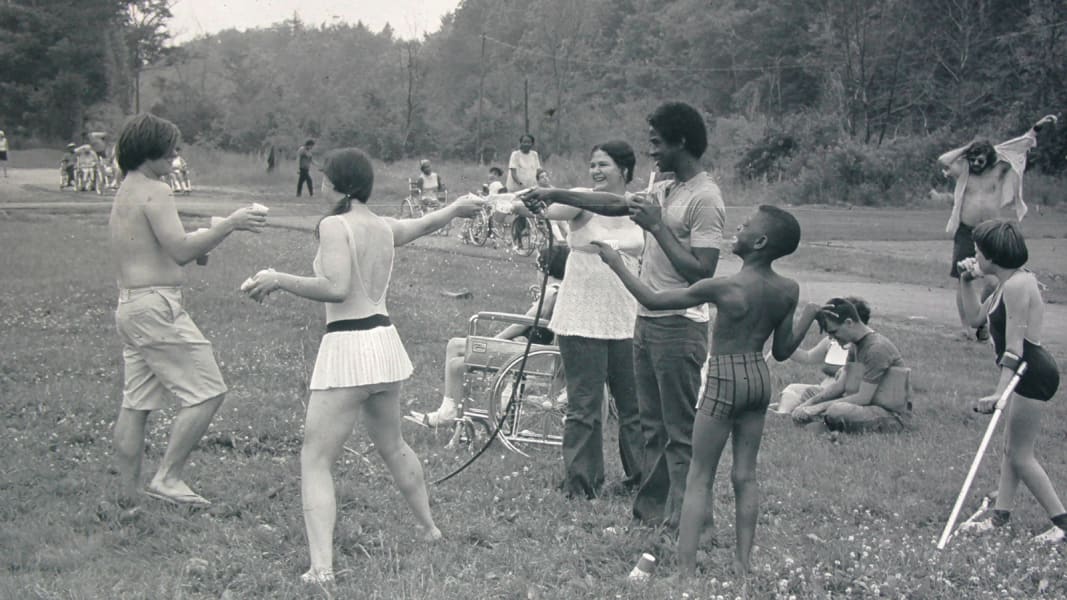Plot Summary- In the early 1970s, teenagers with disabilities faced a future shaped by isolation, discrimination, and institutionalization. Camp Jened, a ramshackle camp “for the handicapped” in the Catskills, exploded those confines. Jened was their freewheeling Utopia, a place with summertime sports, smoking, and makeout sessions awaiting everyone. And campers who felt fulfilled as human beings.
Their bonds endured as they migrated West to Berkeley, California – a promised land for a growing and diverse disability community. There the friends from Camp Jened realized that disruption and unity might secure life-changing accessibility for millions.
Review- The title is misleading because most of the film takes place after camp goers’ time at camp. It follows several vital alumni, and the directors balance them incredibly well in terms of focus because of spending the most time with Judy Heumann. She led the cause for disability rights in New York City in the ’70s.
She then became even more of a public figure during the 504 Sit-In of 1977, at which dozens of disabled people demanded equal rights by refusing to leave the Department of Health, Education, and Welfare. The event got national attention and led to significant change. So the Black Panthers even ended up bringing the protesters food to keep it going.
Importantly, directors Nicole Newnham and Jim LeBrecht (a former camper) don’t use melodrama or manipulative filmmaking techniques to hammer home the exact lesson here, which is that Heumann’s passion and confidence likely don’t exist without Camp Jened.
And they allow you to take that idea a step further and ask yourself how just listening to young people, abled or disabled, can give them the tools to express themselves in the future because the leaders of tomorrow need to be empowered today.
With profound filmmaking, empathy strikes a remarkable balance between delivering a universal message. Telling very individual stories, “Crip Camp” offers something we could all use more of—hope for the future.









